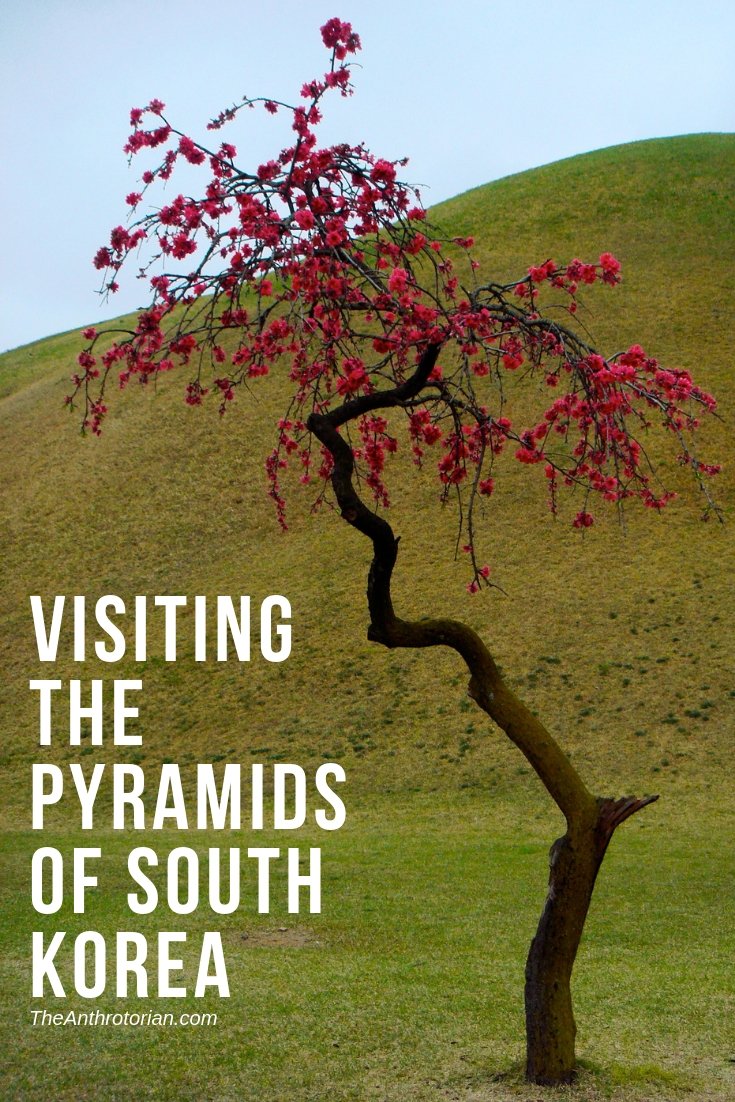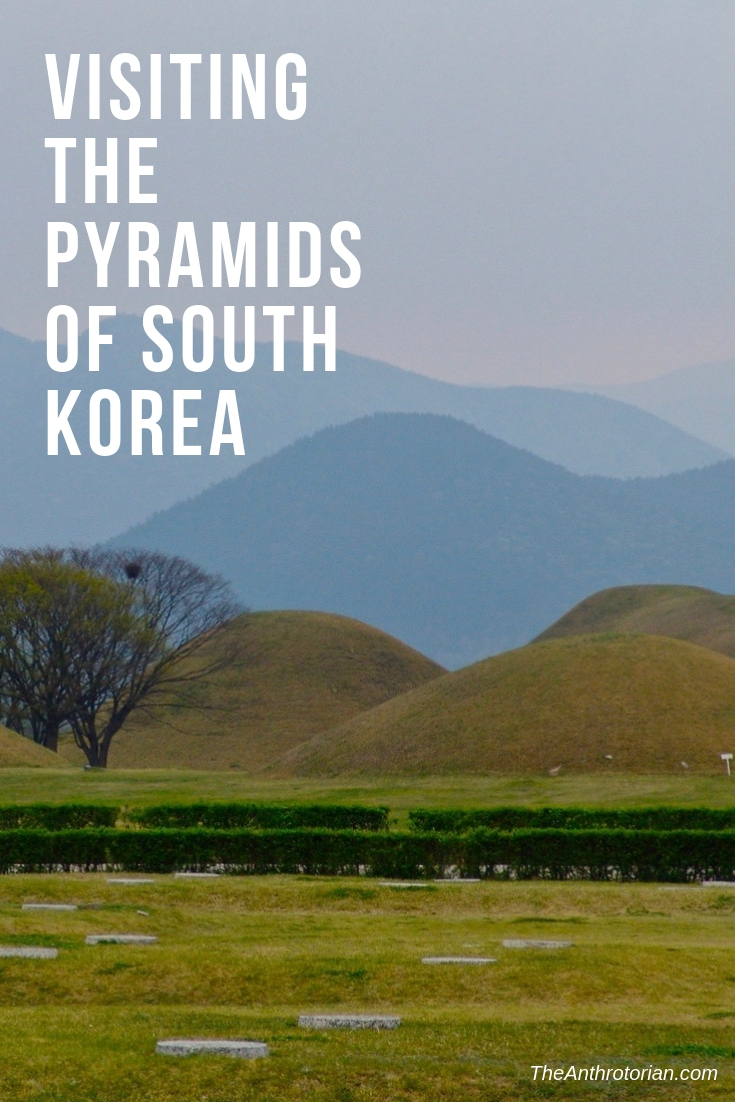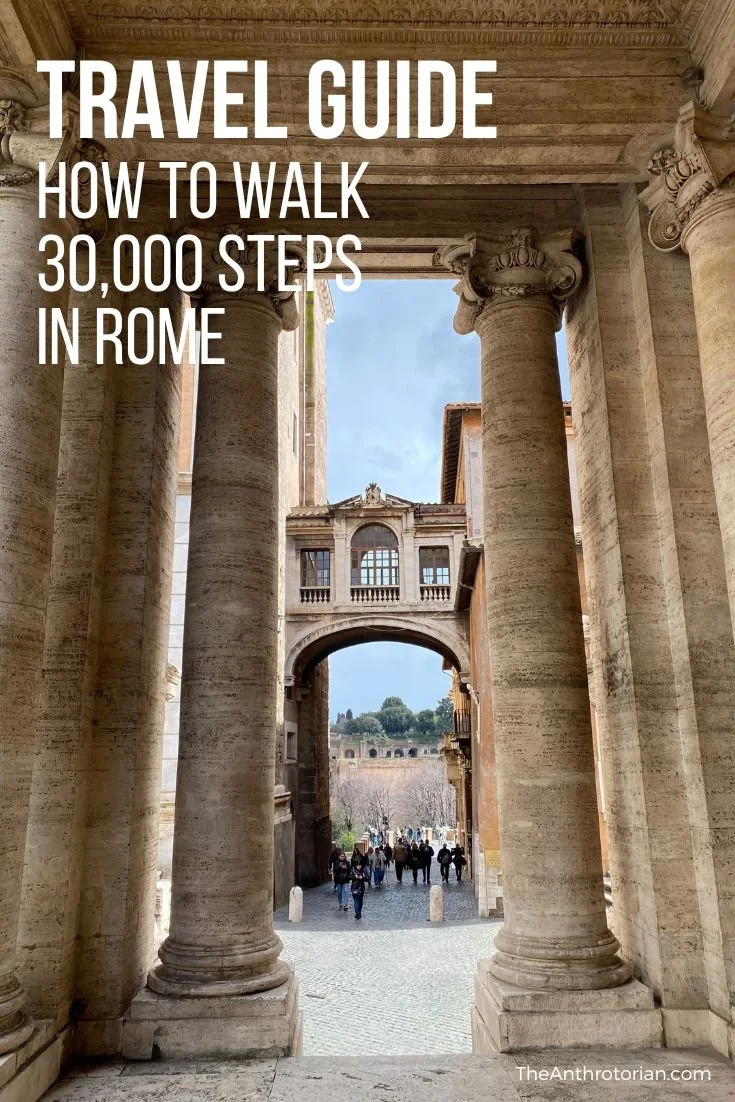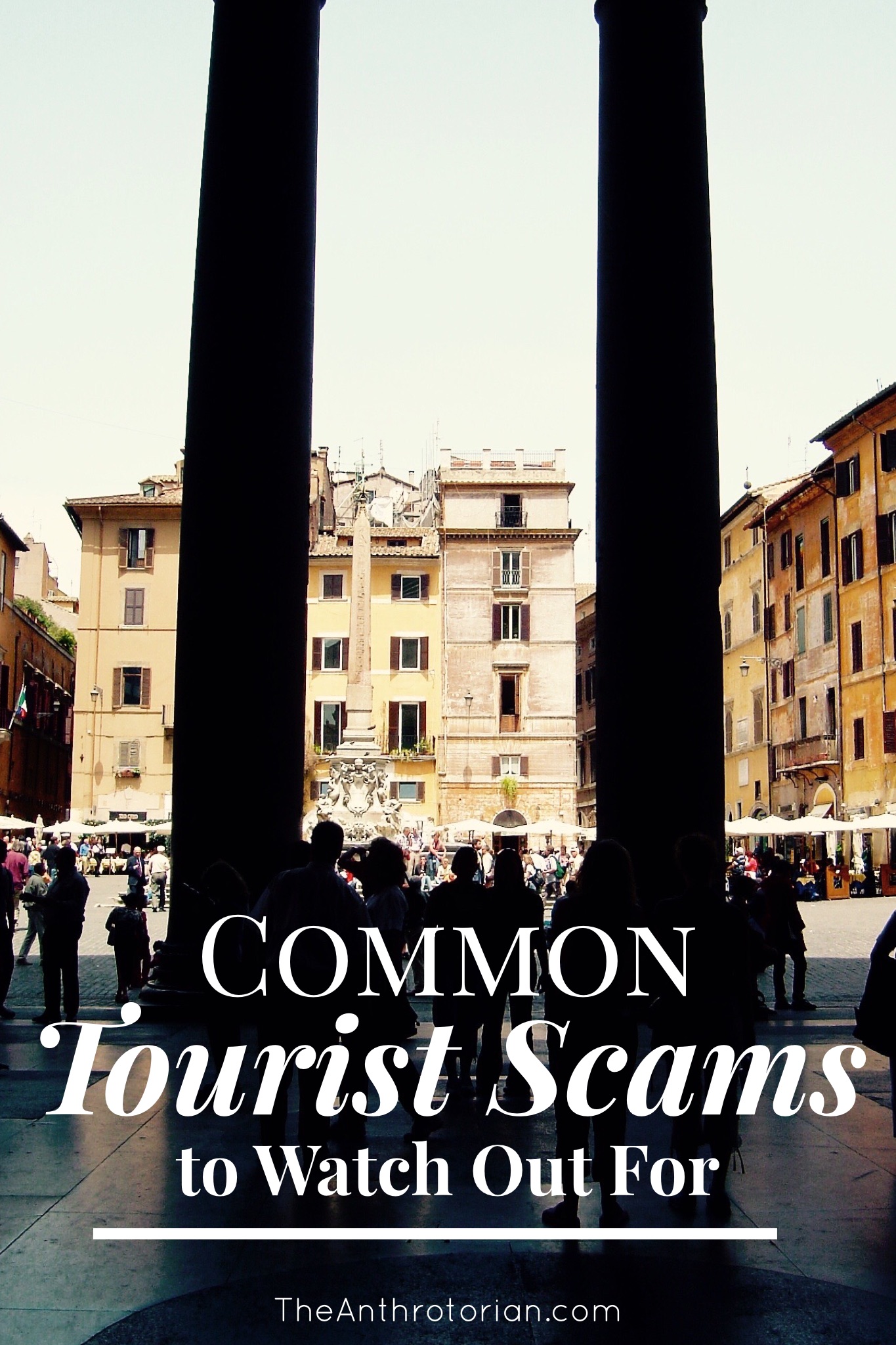The sky was a mosaic of grey, and my face felt raw from the wind that had been whipping against it for most of the afternoon. The thin, pink silk scarf wrapped around my shoulders was doing very little to keep out the chill.
I was walking down a path that curved and wound around huge, grassy man-made mounds rising up on either side of it.
They blocked any view of the surrounding mountains, trees, and houses — but did nothing to stop the biting wind — and made me feel like I was wandering in some sort of alien land.
There were no other people in sight.
They seemed to have stayed outside of the maze of grassy hills, where the more impressive, panorama photo opportunities were.
It felt like I was the only one who had walked through the high, wooden red gate, and into the strange green maze.
The walled-in park was full of thoughtfully placed cherry trees in full bloom and lily-covered ponds that looked like they were straight out of a Monet painting.
Located in Gyeongju, South Korea, the hills — called tumuli — contain the remains of ancient kings and queens.
They are the pyramids of Korea, filled with offerings, artifacts, and the bodies of ancient rulers. Made with layers of gravel, stone, clay, and dirt, each tumulus contains a wooden chamber at its core where the remains are stored.
They way that they were constructed — layer upon layer — makes these tombs incredibly difficult to raid without collapsing the entire structure. Because of this (unlike the pyramids in Egypt), the majority of these burials are still intact.
Overwhelmed by the history of my surroundings, and the beautiful eeriness created by the weather and my isolation, I couldn’t help but venture off the path.
Feeling like I was probably breaking a bunch of cultural rules — but unable to stop myself — I knelt down and, looking around to make sure no one was watching, pressed my hand into the base of one of the massive earthen tombstones.
How to visit
Gyeongju is a huge historic area in the south of South Korea that contains excavated ruins, temples, shrines, museums, and these impressive burial mounds.
It is located around five hours from Seoul by train, or you can catch an express bus from Busan, which is the closest major city to this historic site.
You can visit the many site by bus, foot, bicycle, or tour. Learn more about travelling to and around Gyeongju here.
Pin Me!
Related Posts
Why Learning (and teaching) English As a Second Language Isn't As Easy As You Think
The Hangul Revolution: How The Creation of a New Written Language Changed South Korea Forever
When The Gobi Desert Ruins Your Shirt: Clothing Mishaps In South Korea
Must-Visit Destination: Exploring Jeju Island In South Korea
The Jjimjilbang Experience: Getting Naked With The Locals In South Korea
Meet The Author
Lindsay Shapka is an avid traveler and the creator of The Anthrotorian — a website dedicated to sharing travel tips, stories about adventures, culture quirks, artists you should know, fascinating bits of history, and more!
She is also an artist, marketing specialist, editor, and freelance writer who has work featured on websites, blogs, and in magazines like National Geographic Traveler.















If the last few years of travel has taught us anything, it is that airports are busier than ever, and both they, and the airlines, are struggling to keep up with the demand.
Throughout the recent summer and holiday seasons, we were bombarded with images and videos of stacks of lost luggage left in airports all over the world. If you are anything like me, it has made checking a bag seem like a risk that I am not willing to take — especially if I am going for a short trip and don’t want to be without my clothing, etc. for even a day.